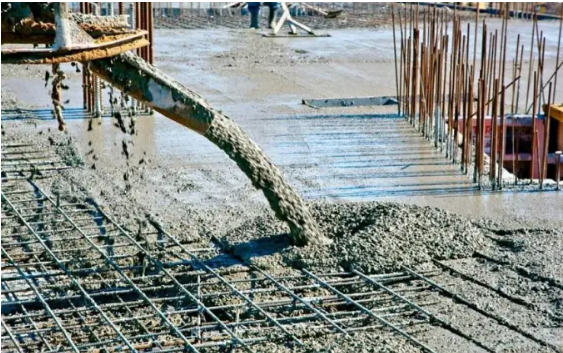Self Compacting Concrete (SCC) is a new generation concrete that is highly workable and doesn’t need compaction effort after casting. SSC is very useful where there is congested reinforcement provided and where there is very little space for needle vibrators.
Constituents of Self Compacting Concrete
- Cement: We can use ordinary cement of 43 grade or 53 grade to produce SCC.
- Aggregates: The size of aggregates to be used in SCC is limited to 20 mm.
- Admixtures: Viscosity modifiers and superplasticizers are used in the mix design of Self Compacting Concrete. This produces highly flowable concrete.
- Water: The role of water is for hydration of the cement in the mix.
Properties of Self Compacting Concrete
- Low Segregation and Bleeding: Though being highly workable Self Compacting Concrete exhibits low segregation and bleeding because of viscosity modifiers.
- High Workability: If concrete is having low workability then it will not compact it self. High workability is what makes concrete Self Compacting.
- High Flowability: This property ensures zero voids in the structural member. That means concrete will fill the formwork fully.
Benefits of Self Compacting Concrete
- Self Compacting Concrete eliminates the need of manual compaction with needle vibrators.
- The permeability of concrete decreased when using SCC and this leads to achieve higher durability.
- We can use SCC in situations of highly dense reinforcement.
- Faster construction is possible with SCC. We can reduce construction time and labor costs.
- Use of SCC helps in reducing noise at construction site because of use of vibrators.
Applications of Self Compacting Concrete
- Self Compacting Concrete is used for repair, restoration, and rehabilitation of structures because it is highly flowable.
- Self Compacting Concrete shall be used in structures with complicated reinforcement details.
- High Flowability offers super finishing of the concrete or RCC elements. Therefore SCC is used in precast elements.
- This type of concrete is applicable where highly complex mold of concrete is needed because of aesthetic purpose.
Tests on SCC
Self Compacting Concrete possesses three properties. Namely high workability, super flowability, and segregation resistance.
Thus to ensure these three things there are three types of tests on SCC done.
- Filling Ability Tests:
This property signifies the concrete’s capability to flow under its own weight without deliberate vibration. We can measure filling ability of SCC with Slump Flow test, and V Funnel test. - Passing Ability Tests:
Passing ability represents ability of concrete to sustain its homogeneity. L-Box test, J Ring test, and U-Box test are done to check the passing ability of SCC. - Segregation Resistance Test:
J-Ring test also measures segregation resistance of the SCC. The test assesses the concrete’s ability to remain homogeneous and resist segregation, which is important for the concrete’s quality and performance.
Also Read-
Lightweight Concrete – Making And Applications
Foundation on Black Cotton Soil – Problems and Solutions
Factors Affecting Durability of Concrete: Engineering Perspective
One Way Slab V/S Two Way Slab – Structure Analysis
Ferrocement Concrete: New Generation Concrete
External Resources-
https://www.sciencedirect.com/topics/materials-science/self-compacting-concrete
